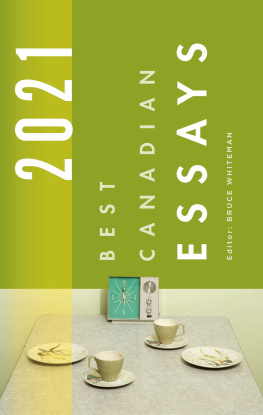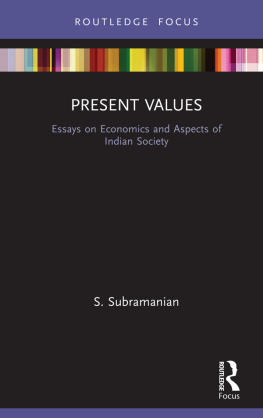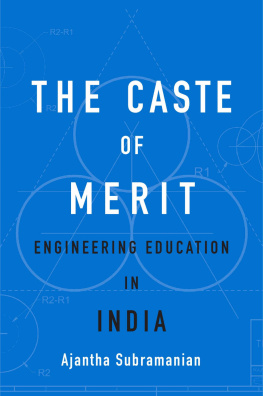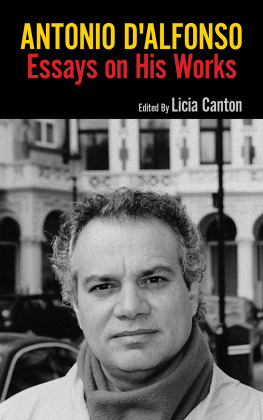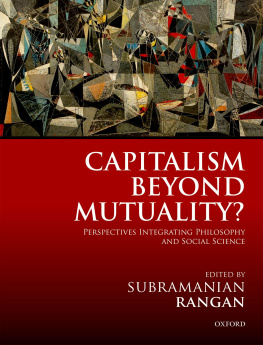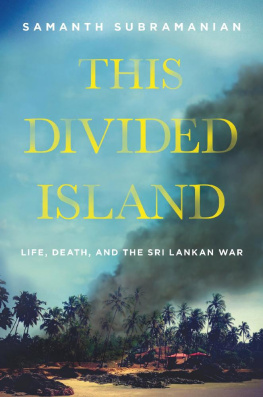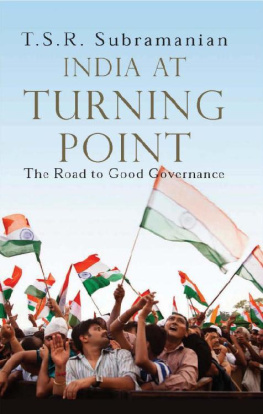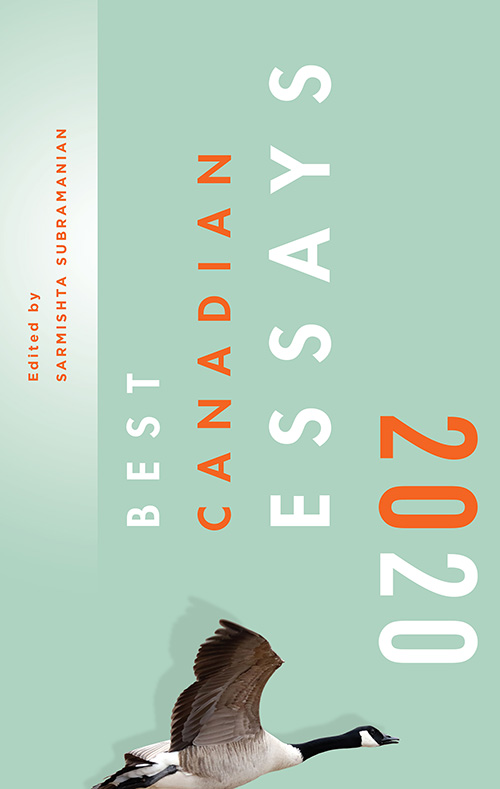Best Canadian Essays
2020
Edited by Sarmishta Subramanian
Biblioasis
Windsor, Ontario
Copyright the contributors, 2020
All rights reserved. No part of this publication may be reproduced or transmitted in any form or by any means, electronic or mechanical, including photocopying, recording, or any information storage and retrieval system, without permission in writing from the publisher or a license from The Canadian Copyright
Licensing Agency (Access Copyright). For an Access Copyright license
visit or call toll free to 1-800-893-5777.
first edition
ISBN 978-1-77196-366-4 (Trade Paper)
ISBN 978-1-77196-367-1 (eBook)
Edited by Sarmishta Subramanian
Copyedited by Emily Donaldson
Cover and text designed by Gordon Robertson
Published with the generous assistance of the Canada Council for the Arts, which last year invested $153 million to bring the arts to Canadians throughout the country, and the financial support of the Government of Canada. Biblioasis also acknowledges the support of the Ontario Arts Council (OAC), an agency
of the Government of Ontario, which last year funded 1,709 individual artists
and 1,078 organizations in 204 communities across Ontario, for a total of
$52.1 million, and the contribution of the Government of Ontario through
the Ontario Book Publishing Tax Credit and Ontario Creates.
printed and bound in canada
Contents
Sarmishta Subramanian
Introduction
Michelle Orange
How Free Is Too Free?: Surveillance Capitalism, Market Democracy, and the Dangers of Modern Freedom
Carl Wilson
Its Too Late to Cancel Michael Jackson
Michael LaPointe
The Unbearable Smugness of Walking
Alexandra Kimball
The Loneliness of Infertility
Benjamin Leszcz
The Life-Changing Magic of Making Do
Larissa Diakiw
The Disneyland of Death
Andy Lamey
In the US Campus Speech Wars, Palestinian Advocacy Is a Blind Spot
Wayne Grady
Syncopes
Christina Sharpe
Beauty Is a Method
Alexandra Molotkow
Selfish Intimacy
Jeremy Narby
Confessions of a White Vampire
James Brooke-Smith
Meritocracy and Its Discontents
Jenny Ferguson
Off Balance
Andrew Nikiforuk and Amorina Kingdon
From Berth to Death
Alanna Mitchell
For the Love of Pronghorns
Contributors Biographies
Publications Consulted
Acknowledgements
Introduction
Sarmishta Subramanian
This booklike most that have found their way into the world this fallbegan life in the Before Times. These essays were written in a long-ago 2019, and I read many of them, and others, in an also distant 2020 in a caf with an elegant sofa, a cup of bergamot-scented tea on the table before me. Sometimes (glorious to think of now) Id be annoyed by the musicdramatic French songs or bad contemporary pop that I would never listen to at homeor find myself distracted by a years-old New Yorker left on the table: the sort of accidental diversions we used to encounter in those times, a consequence of sharing spaces that were not our own with people we didnt know. The loss of novelty is not the point, but rather of unpredictability, the unknown, the uncontrollable, the unpatrolled.
Exactly the opposite impulses guide us today. At some point along this books journey, the world changed. The moment can be marked precisely by a calendar date (March 12, the day symphony concerts and NBA and NHL games disappeared from calendars) or a Covid-19 case count (179 in this country, an innocent number, so modest it makes you gasp). In the world we now inhabit, any unpredictable element carries risk. So we have learned to weigh and debate acts that were once routine and spontaneous, courting daily what psychologists have dubbed decision fatigue. For long stretches of 2020, we have regarded the world, many of us, with the cold canniness of insurance adjusters or algorithms, calculating and recalculating risk and benefit. We are finely attuned to micro-fluctuations in eachwell, except for those of us who arent, who inadvertently re-up the risk-aversion quotient for the rest of us.
I read Wayne Gradys essay Syncopes in the Before Times. It begins with a fainting spell (the medical term is syncope) the author had at the fantastically picturesque Shouldice hos pital in Toronto, following hernia surgery. The syncopes he discusses are more often not medical; as a linguistic term, a syncope refers to an elided or disappeared sound in a word. In music it gives rise to syncopation, the disruption of an established rhythm with the addition of opposing new rhythms. Grady travels, figuratively speaking, from the floor of a lounge at the Shouldice, where he was found by nurses following his loss of consciousness, to consider the impact of other eli sions and disappearances. He does so via Vladimir Nabokov; the journalist Masha Gessens reflections on syncopes; the Second World War; his own fathers journey as a biracial Black man. Its an erudite, meandering reflection on moments of displacement that change us.
By the spring, when I was re-reading these essays, Gradys rumination about the intersection of the medical, the literary, and the cultural, to form a kind of theory of loss and arrival had suddenly become an encapsulation of the present moment. Many of the worlds citizens were experiencing something unusual: a kind of single global syncope, a shared loss, a stormy interruption to consciousness brought about by the same event. A syncope, Grady writes, can be either a significant absence or an accentuated presence. The universal syncope created by the coronavirus seemed to be both things at once. Its presence embodied absences: blank spots in our financial systems, our economies, our health care planning, our political systems, our foundational social structures. And it simultaneously made present things wed forgotten to notice or whose worth wed stopped seeing: the effort of producing food, which encompasses all of two percent of GDP, and matters more than most of the other ninety-eight; the inadequately compensated labour of caregivingmore work without which societies can hardly function; the nature and value of kinship.
That last issue, a big one, has become more legible in an era of lockdowns and social bubbles. The signs of disquiet are everywhere: the loneliness of grandparents stranded in empty houses or vertiginous condos; the harried lives of parents suddenly raising children unaided; those children, cut off from many of the nourishing connections in their lives. One theme that has emerged is the culpability of the nuclear family in all this isolation, though the flaws in that model were not entirely invisible in the past. Their effects were familiar to anyone answering the demands of aging parents and grow ing children and encroaching, ever-intensifying jobs. Who is served well by these discrete, self-sufficient units of com munity? Not elderly grandparents; not children; not, often enough, most of the individuals involved. Such is the allure of freedom; we choose it even when it constrains us. How free is too free? Michelle Orange asks in the essay that opens this collection. That question, she notes, may have boggled democracies throughout history, but never in quite the way it now boggles ours. Orange is exploring the paradox of free dom in the context of surveillance capitalism and modern democracy , but it applies in other areas, including the reality of human connection.
In the West, it must be said, the nuclear family is not exactly a recent phenomenon, unless one considers the thirteenth century to be recent. The nuclear family apparently didnt elbow its way to the top helped along by industrialization, or late capitalism, or a neoliberal consensus; medieval English parish records show this was how people lived in those times, too. But alternative models, of close and interconnected communities, have long thrived in other places, and still do. I found myself, in lockdown in Toronto, envying my aunts and uncles and their children and grandchildren in Delhi, who live in five independent but interlocked households separated by a few hundred feet and two or three sets of stairs. They converse from balconies; in the lockdowns most stringent weeks they could run food and supplies back to each other. Almost no one enjoys the freedoms, or burdens, of living alone.


